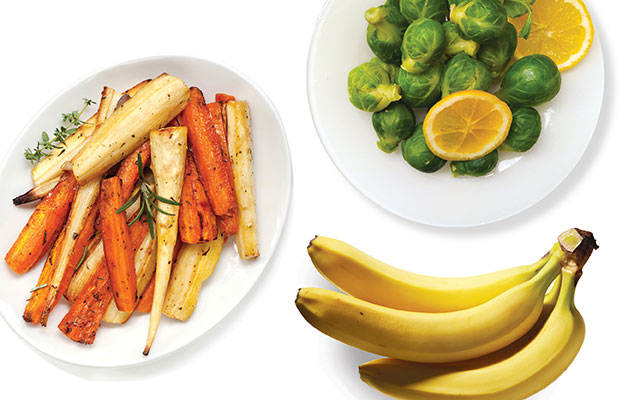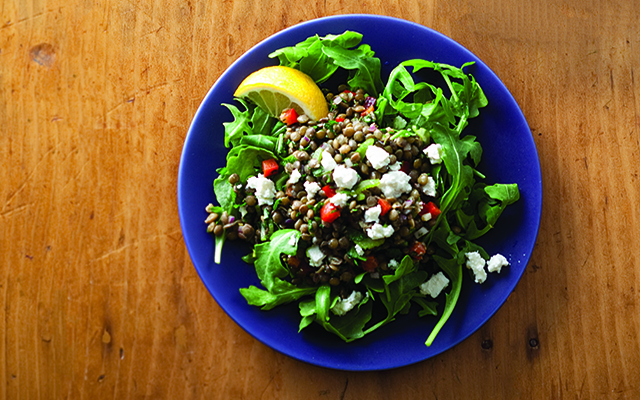There are three forms of fiber, and we need some of each to thrive. The different types work together to prevent constipation, promote detoxification, and support a healthy microbiome.
1. Insoluble fiber absorbs fluid and adds bulk in the large intestine. “It makes stools larger and easier to pass,” says nutritional biochemist Karen Hurd, MS.
- Sources: Whole grains, nuts, beans, seeds, root vegetables (such as carrots, parsnips, and rutabaga), and fruit with edible seeds, like kiwis, grapes, raspberries, and raisins.
2. Soluble fiber collects bile molecules, metabolic waste products, hormones, and exogenous chemicals so they can be eliminated from the body. When soluble fiber is lacking, waste products get reabsorbed in the intestines and recirculated through the body, which can cause problems. With soluble fiber, these particles “can’t escape the net; they can’t be reabsorbed,” Hurd says.
- Sources: Beans, peas, flaxseeds, apples, psyllium, avocados, and Brussels sprouts.
3. Prebiotic fiber feeds the good bacteria in your GI tract to produce health-promoting compounds, like the short-chain fatty acid butyrate. (Butyrate plays a surprisingly big role in overall health. Learn more at “The Health Benefits of Butyrate.”)
- Sources: Bananas, onion, garlic, dandelion greens, and chicory root.
This originally appeared as “The Facts on Fiber” in the September 2020 print issue of Experience Life.





This Post Has 2 Comments
What is a good amount of each type of fiber to have every day?
We need all foods which are high fiber foods .